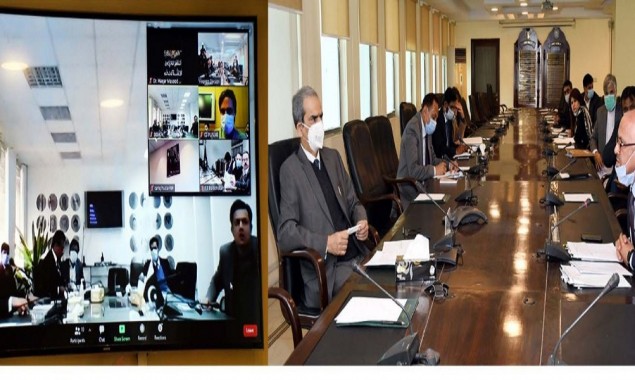BOL News Exclusive: Prices of essential items go up 14.52% Year-on-Year
KARACHI: The Sensitive Price Indicator (SPI)-based inflation has increased 14.52 per cent...

Tarin directs effective monitoring teams to control prices of essential items
KARACHI: Finance Minister Shaukat Tarin has asked the provincial governments to mobilize their teams for the provision of relief to the masses by strictly monitoring the price movement in the markets.
Chairing the meeting of the National Price Monitoring Committee (NPMC), the finance minister directed the Ministry of Industries and Production to pass on the benefit of declining prices of palm oil and soybean in the international market to the domestic consumers.
The ministry has also been directed to hold negotiations with the ghee and edible oil manufacturers to shift the declining trend of the international oil prices to the local consumers, otherwise, strict action would be taken against the Utility Stores Corporation (USC) managing director Umer Lodhi informed the meeting that the corporation is working on the national plan of extending the number of USC outlets across the country.
[amazonad]
Tarin directed the USC official to hold talks with the Balochistan government for establishing USC outlets in the province on those spots where a maximum number of consumers may take benefit of essential items at subsidized rates.
Briefing the meeting, the finance secretary said that the weekly Sensitive Price Indicator (SPI) increased 0.28 percent for the week ended June 17 after a three weeks consecutive decline.
The prices of 21 items slightly increased, nine items prices declined, and the prices of 21 items remained stable. He apprised the movement of essential items during the last six weeks, as well as price comparison among the provinces and the Islamabad Capital Territory (ICT).
The chair appreciated the efforts of the ICT administration in controlling the prices of most of the items.
The Ministry of National Food Security and Research gave a detailed presentation regarding the production cycle of perishable items such as tomatoes, potatoes, and onions along with pulses. In the case of pulses, two-thirds of the demand is being fulfilled through imports; thus, there is a need to build strategic reserves to ensure smooth supply, achieve price stability and reduce international dependence.
The ministry of food was directed to prepare an emergency plan for establishing cold storage and warehouses in key areas where perishable food items are produced and also explore feasible options of collaboration of the public-private partnership model, in this regard.
During the meeting, the finance minister was briefed that as per the international commodities’ prices comparison published by the World Bank, the international price of sugar has increased 58.3 percent (year-on-year). Similarly, the international price of soyabean oil increased to a whopping 119.20 percent, whereas it increased 23.5 percent during April-May.
The Covid-19 crisis has wreaked havoc in the international supply chain scenario and fuelled food inflation across the globe. Further, the international price trend in palm oil indicates an increase of 102.6 percent (year-on-year) and 7.9 percent during the last month.
Going by the aforesaid international trend, the domestic price hike couldn’t be avoided, as Pakistan is the net importer of staple food commodities such as wheat, sugar, edible oil, pulses, etc. During these testing times, the government has taken all possible measures to provide maximum relief to the masses during the pandemic-induced global food inflation crisis.
Tarin also directed to work out the modalities to maintain strategic reserves of sugar and wheat to ensure smooth supply at affordable prices during the upcoming financial year. He also directed to initiate an international procurement drive of wheat and sugar through public, private and government-to-government arrangements.
In his concluding remarks, Finance Minister Tarin stressed that the government is fully cognizant of its responsibility regarding the provision of essential items at affordable prices across the board. Keeping in view the fact that Pakistan is a net importer of food, the government has taken all-out measures to provide essential items through a network of Sahulat/SaastaBaazars, hefty subsidies through a chain of the utility stores outlets under the Ramazan Package, and is taking strict administrative measures to keep the prices of basic items in check.
Catch all the Business News, Breaking News Event and Latest News Updates on The BOL News
Download The BOL News App to get the Daily News Update & Follow us on Google News.